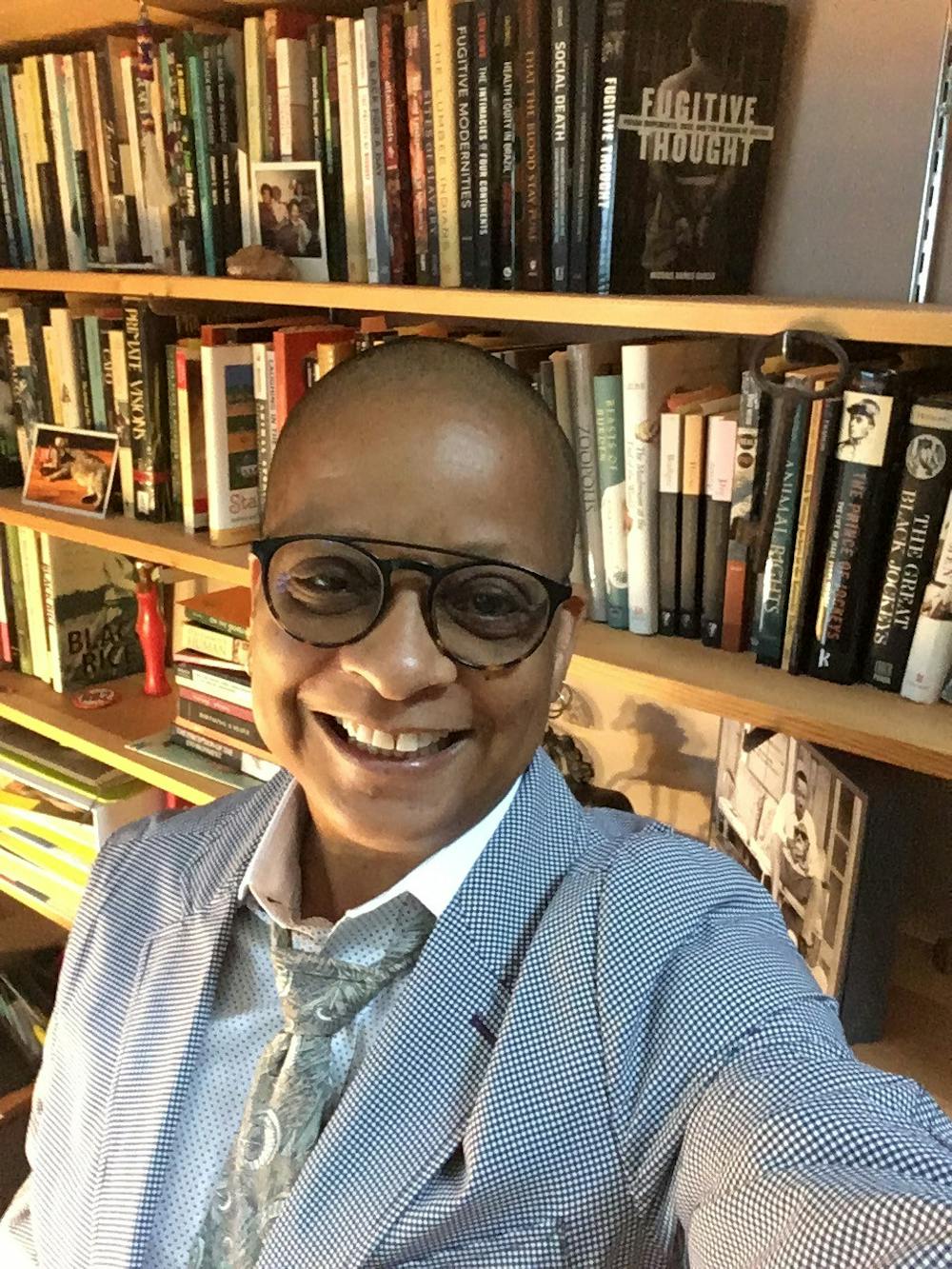As the pandemic crept across the globe and stay-at-home orders loomed on the horizon, professor Sharon P. Holland spent one of her last days at UNC standing on the Roy Williams Court, $5,000 richer than she’d been the week before.
During halftime of a March 3 men’s basketball game against Wake Forest, Holland, the chairperson of the Department of American Studies, was recognized with a Distinguished Teaching Award for Post-Baccalaureate Instruction. The prestigious award came with a hefty stipend.
“I had this extra cash, and I wanted to do something good with it,” she said.
Determined to funnel her prize money toward someone in need, Holland turned to Chapel Hill organizer Tiz Giordano, with whom she had brainstormed ways to foster queer and transgender community for years.
Giordano and activist Bakari Roscoe had previously discussed the idea of a mutual aid fund for local marginalized groups — and now that Holland had several thousand dollars’ worth of seed money at her disposal, the three could finally make it happen.
Thus, the COVID-19 Queer/Trans/Indigenous People of Color Survival Fund was born. Seven months later, the fund has distributed over $46,000 to queer, trans and Indigenous people of color in Orange County and rural North Carolina.
A low-barrier initiative, the fund offers financial assistance, particularly to those who don’t currently have access to unemployment benefits or stimulus checks, according to its website. It operates on "solidarity, not charity," as two of its three founders are Black, and all are LGBTQ.
About a quarter of the money has come from grants from organizations like the antiracist group Southern Vision Alliance, Giordano said. The rest consists of individual donations, Holland said, ranging anywhere from $5 all the way up to $2,000. At any given time, the fund has between 20 and 30 recipients, many of them Black trans people.
This mutual aid is especially necessary now, as the fund’s Black, brown, Latinx and Indigenous recipients are disproportionally affected by the pandemic.




